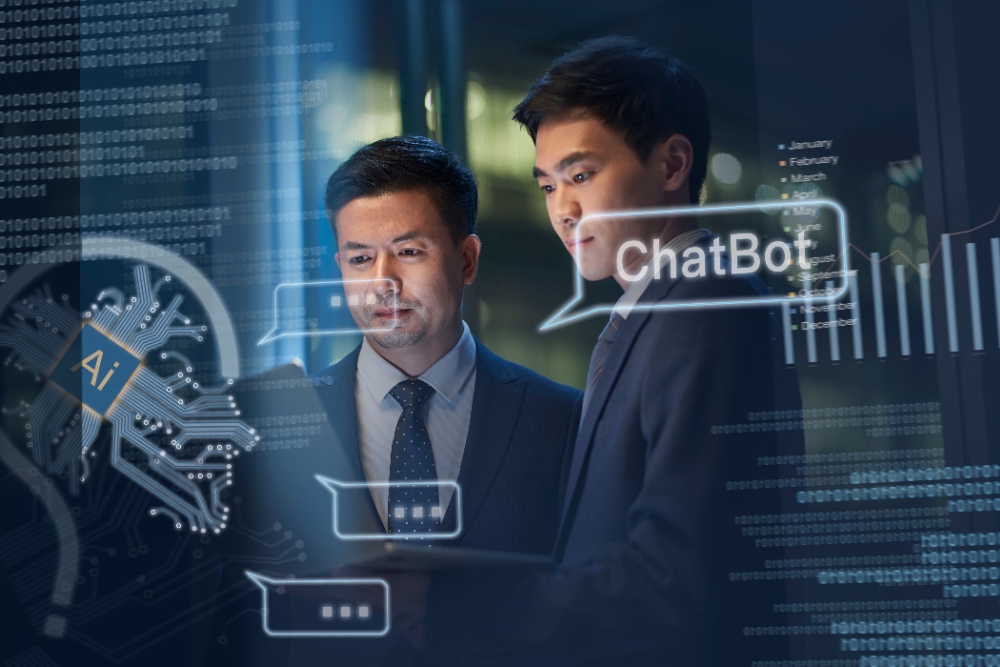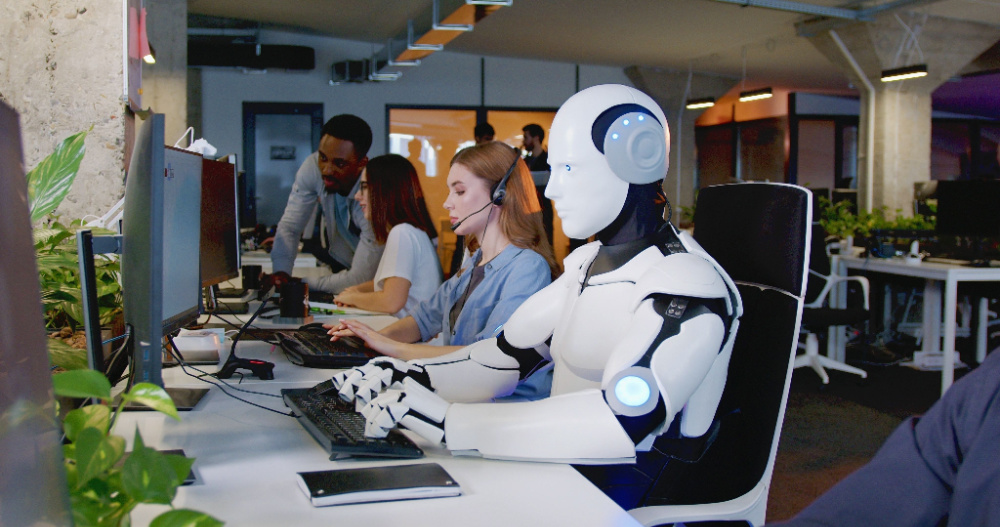
Efficiency with AI in Leadership Development
Efficiency with AI in Leadership Development
Do you prefer to listen to this article? Click below to access our AI-generated audio version!
Efficiency with AI in Leadership Development
Perhaps the first AI hype is already over, but it paves the way for a more realistic view. AI transformation is progressing at different speeds in different industries.
However, the training industry is among the pioneers: machine learning has enormous potential to make human learning more efficient, effective, and cost-effective. Since 2023, we have been experimenting intensively with artificial intelligence as a provider of leadership development and are happy to share our experiences.
AI in everyday business: a fixed routine in meetings
For a year and a half, AI has had a permanent place in every company management meeting. At least one current topic is supplemented by an LLM (Large Language Model) with a perspective or recommendation.
This practice has proven itself and enables more informed decisions with minimal time investment. Experiments with automatic logging, on the other hand, have proven less successful.
In August 2023, we launched AICO (Artificial Intelligence Co-Trainer), which has since been supporting us with energy exercises, music selection, transfer tasks, and as a knowledge source for participant questions in the seminar. Shortly after that, we tested the first ChatGPT role-playing game in a seminar and were impressed by the positive participant feedback. Initially, we provided the prompts as a transfer task.
AI transformation roadmap: planning at the company level
In January 2024, we launched a company-wide AI transformation roadmap. This means that we plan how AI can be used in key areas of the company every quarter to ensure that the entire organization is involved in this development.
In our OKR (Objectives and Key Results) planning meeting for the second quarter, we determined that no offer would be sent to customers without an AI component that covers at least 10% of the learning journey. Customers will still have the option to book the AI components that were previously free of charge.

AI Lab: A role-playing center for real-world scenarios
In the third quarter, we plan to set up an AI lab on our website where all applications can be tested and used in a bundled form. This lab includes a role-playing center for various leadership communication situations. Participants take on the role of the leader, while the AI takes on the role of the employees.
A keyboard is no longer necessary – the role play is done by speaking and listening. After completion, the leaders receive targeted feedback that refers to the learned communication models. The role play can be repeated as often as desired, not only in the seminar but also when the situation arises in real life.
The future of learning: from 2D avatars to “superpowers”
Just as e-learning has replaced knowledge transfer in training over the last 20 years, AI has the potential to revolutionize skills development today. Currently, role-playing on the phone is still purely auditory, but soon visual avatars will be integrated as role-playing partners.
AI applications with 3D avatars for virtual reality glasses already exist. However, we suspect that 2D avatars will initially be used as learning partners because they are easier to use. These avatars are already supported by so-called “superpowers”. For example, Hume.ai gives AI coaches empathy and enables feedback on the current emotional state of the role-playing participant using voice analysis.
Real avatars as knowledge messengers and the next step in learning transfer
We are experimenting with “real avatars” of trainers who are available to participants as knowledge messengers after the seminar. This new type of learning transfer support enables agile learning when needed. Despite all efforts, learning transfer has often been a neglected topic in the industry.
Our leadership agent project (“LAgent”) is proving more challenging: we are developing an AI agent that can proactively pursue short-and long-term goals together with the leader. However, the LLMs currently available are still limited in their memory function, which would be necessary for responsible co-leadership. But this is precisely where development is progressing rapidly, and it is becoming increasingly easier to develop AI agents.
Conclusion: AI transformation in learning and development
Overall, the AI transformation in the area of learning and development is a fascinating field and is contributing significantly to the development of organizations and, by extension, society.

Mag. Gunther Fürstberger
CEO | MDI Management Development International
Gunther Fürstberger is a management trainer, author and CEO of Metaforum and MDI – a global consulting company providing solutions for leadership development. His main interest is to make the world a better place through excellent leadership. He has worked for clients including ABB, Abbvie, Boehringer Ingelheim, DHL, Hornbach, PWC and Swarovski. His core competence is leadership in digital transformation. He gained his own leadership experience as HR Manager of McDonald’s Central Europe/Central Asia. At the age of 20 he already started working as a trainer.














